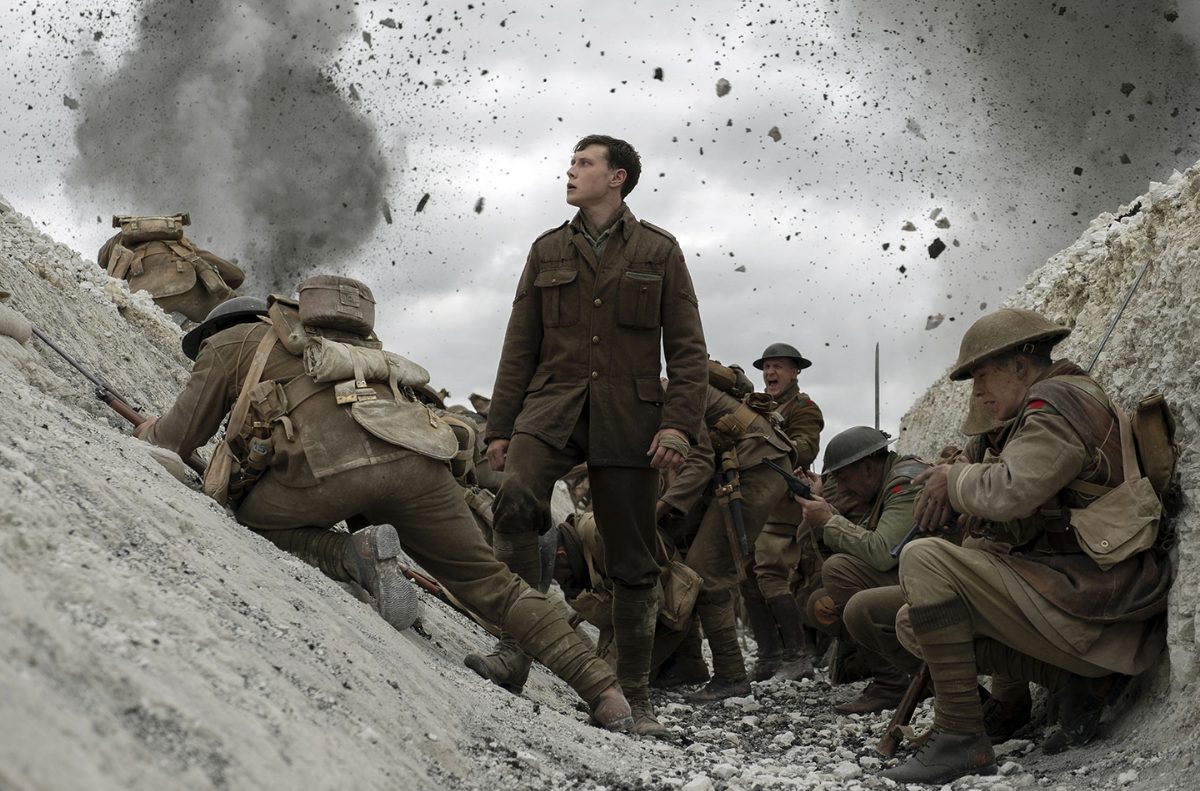A 103 years ago in 1917, the world’s biggest heroes had been away from their mothers and sisters and their wives and daughters for 3 years. They were men, young and old, who walked away from their families and walked into foreign lands to fight for their kings and countries, neighbours and families.
Over 42 million men fought in World War 1 for the Allied Powers., and by 1917, over 4 million of them had already died. And by the end of the war in 1918, two 2 million more allied soldiers were killed.
1917 was the pivotal year in world war 1. That year, Russia’s military losses and poor economy during the war made them vulnerable to the Russian Revolution, and they pulled out of the war. And if America hadn’t declared war on Germany that year, the Central Powers may have defeated the Allied powers and won the war.
But the film 1917 isn’t about revolutions and declarations of war. It isn’t about how significant nations affected the war in 1917. No, it’s about how two young, insignificant men affected the war in 1917.
1917 is a film about two young, British soldiers, named Blake and Will, who are sent to cross No man’s land and enemy territory in time to hand-deliver a message that would save 1,600 soldiers—including Blake’s brother—from German ambush.
1917 is co-written and directed by Sam Mendes, and it’s based on his grandfather’s experiences at World War 1. And the film’s insignificant protagonists are complemented by major stars in insignificant roles.
The film features big stars like Benedict Cumberbatch, Mark Strong, Richard Madden, and Colin Firth in small roles. The movie’s plot is simple, with major turning points that seemingly demand grand and graceful soundtracks and camera shots. But the film refuses to make the horrors of war an attractive scene or gratuitous soundtrack.
For instance, a major character’s death in the movie is made so insignificant, it essentially happens off-camera. It is the climax of the film, and yet it’s a blink-and-you’ll miss it moment.
And that isn’t unintentional. Shortly after that scene, one character says to a grieving character: “it doesn’t do good to dwell [on their death].”
And that is why the camera doesn’t dwell on the character’s death. Dead bodies are the norm in war. The main characters didn’t dwell on their fellow soldiers’ deaths when they were forced to walk over and swim over corpses to complete their mission. That character’s death might be surprising, but it was one of over 4,000 allied soldiers’ deaths that day in 1917. And that day in the film isn’t unlike every other day during World War 1.
And that is the most memorable thing about the film. It’s directed in a style that is meant to immerse the audience into the setting of movie. The cinematographer of the film uses long takes to give the impression that 1917 is produced as one continuous shot. The camera follows Blake and Will’s every step for 2 hours—without break—until the end, making it a unique movie-experience.
1917 isn’t a complex film. It’s a simple film about a day—or a couple of hours—into the lives of two young, insignificant British soldiers. But its simplicity is what makes the film so good. The film doesn’t try to impress its audience. It doesn’t use a hyper-stylized filter to make the setting bleaker, and it doesn’t make its two heroes braver than they really are.
The first scene of the movie starts with two young men resting from a mission. And the last scene of the film features one young man resting from his mission. That was just another day in a soldier’s life in 1917. They had been at war for 3 years. And they would be at war for another year.
The heroes in the film are just two of many insignificant young men who did what was required of them that day. They didn’t dwell on the deaths behind them, instead, they dwelled on their mission that day. Then they rested and did the same the following day.
That is what soldiers—heroes do. That is how our soldiers won World War 1. And 1917 captured that simply, and beautifully.

